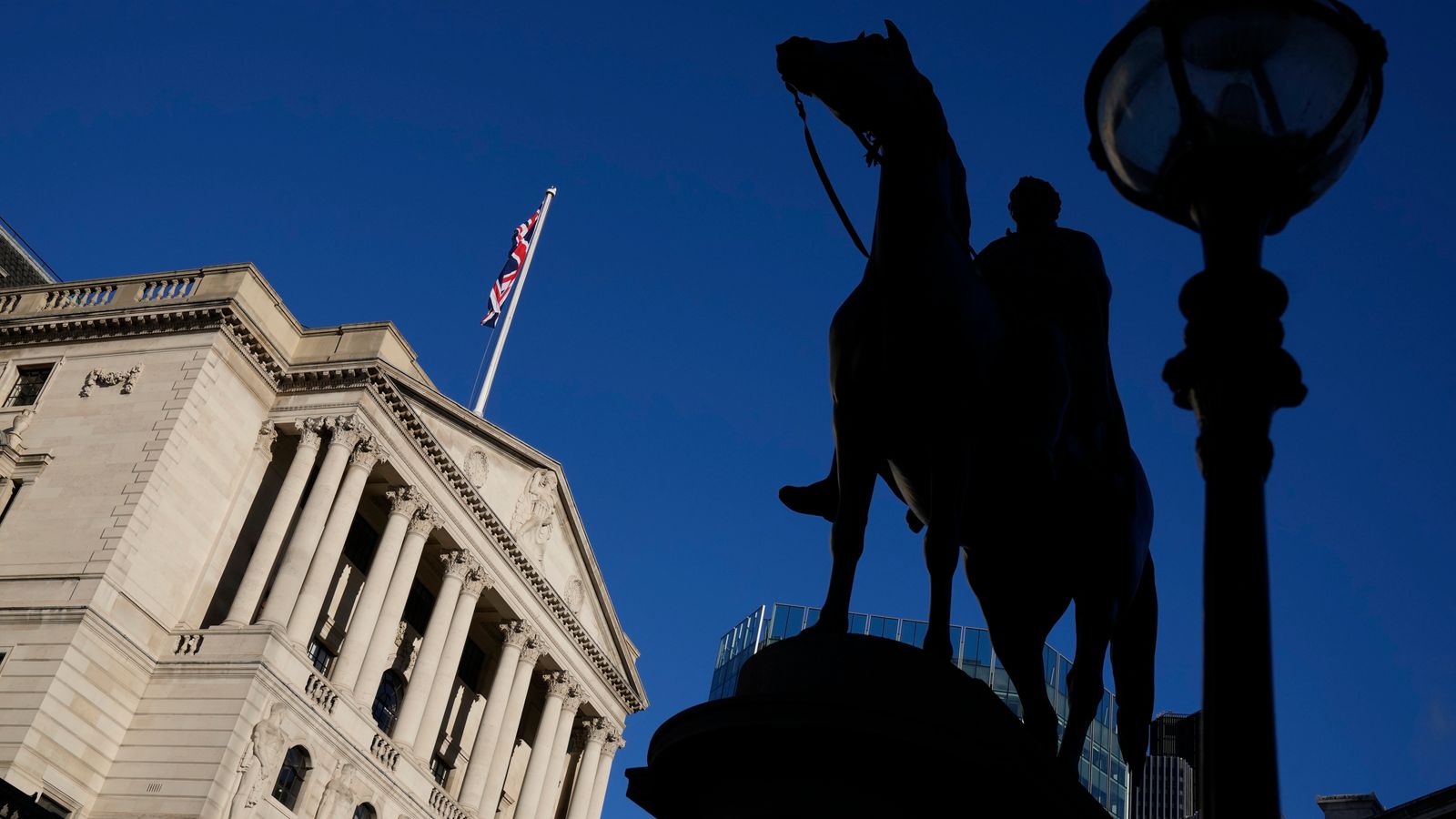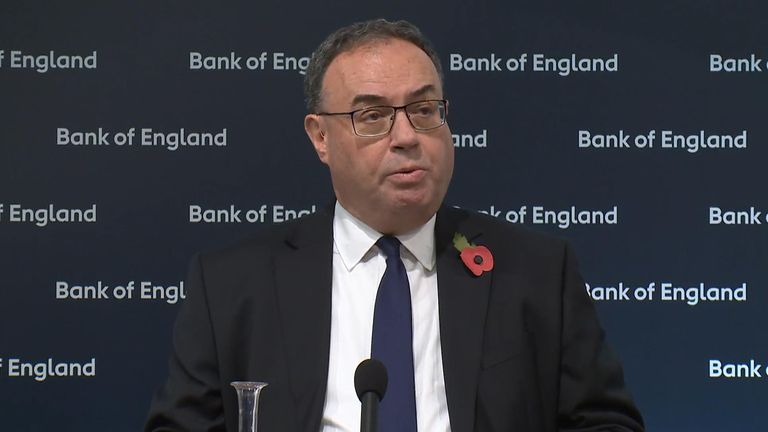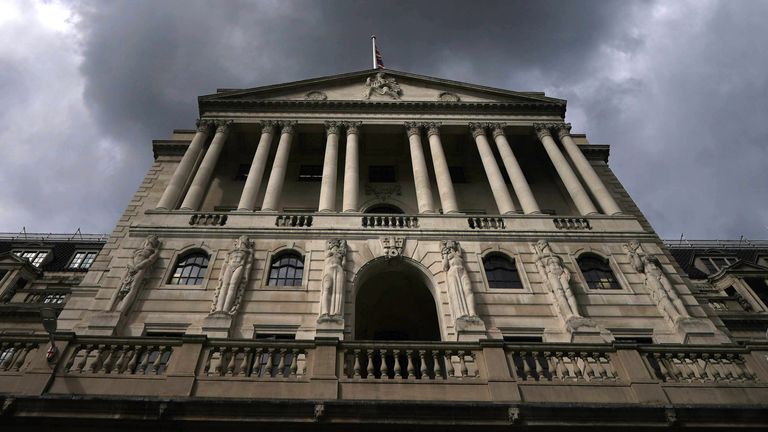Bank of England should have its remit ‘pruned’ alongside forecasting shake-up


The Bank of England’s remit should be “pruned”, according to a report by a Lords’ committee which is critical of its work in the build up to the cost of living crisis.
The Lords Economic Affairs Committee said the Bank, which works to keep the rate of inflation close to a 2% target set by the Treasury, had been spread too thin.
The peers criticised an expansion of its objectives in recent years to include areas such as energy security and climate change, alongside monetary policy and financial stability.
They declared public confidence had clearly been shaken as the pace of price growth surged following the end of the COVID pandemic – exacerbated by the effects of the Russian invasion of Ukraine.
Inflation ultimately hit its highest level in 41 years – above 11%.
The peers said witnesses had reported “a lack of intellectual diversity”, which had led to an “over-reliance on inadequate forecasting models” and a “persistence of above-target inflation.”
The Bank has faced criticism for being slow to raise interest rates in a bid to choke demand in the economy.
It believed, in the second half of 2021 like other major central banks, that the rise in inflation in the West was “transitory” – temporary in nature – but it has argued no one could have seen the war in Ukraine coming.
Sanctions imposed on Russia contributed to the unprecedented surge in energy and other commodity costs that followed.
Advertisement
Read more business news:
Rishi Sunak to unveil multibillion-pound investment plan
Christmas dinner favourites at risk after washout harvest
The Bank’s monetary policy committee first acted against inflation in December 2021 as economies got back in gear from the pandemic.
It subsequently raised the cost of borrowing a further 13 consecutive times until this summer as the effects of Russia’s war played out.
Please use Chrome browser for a more accessible video player
3:31
Bank’s Bailey: Inflation still too high
The Bank has pointed out it was the first Western central bank to impose an interest rate rise but admitted failures in its forecasting models.
It ordered a review, which is being led by former chairman of the US Federal Reserve, Ben Bernanke.
The committee’s other suggestions included additional scrutiny of the Bank’s work by parliament due to the expansion of its regulatory oversight.
Please use Chrome browser for a more accessible video player

0:17
Former BoE governor: Bank back on track
“We are concerned that a democratic deficit has emerged, which risks undermining confidence in the Bank and its operational independence,” it said.
“We therefore believe that current parliamentary arrangements should be enhanced. In particular, we recommend that Parliament should conduct an overarching review of the Bank’s remit, performance and operations.”
The Bank responded: “We’d like to thank the Lords EAC for this report and will be giving the recommendations careful consideration. We’ll respond formally in due course.”